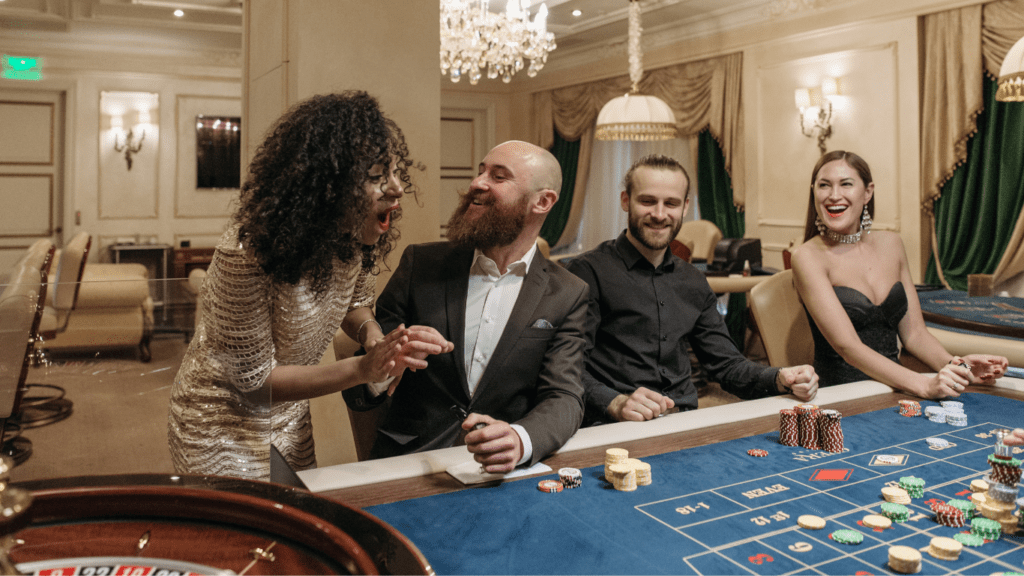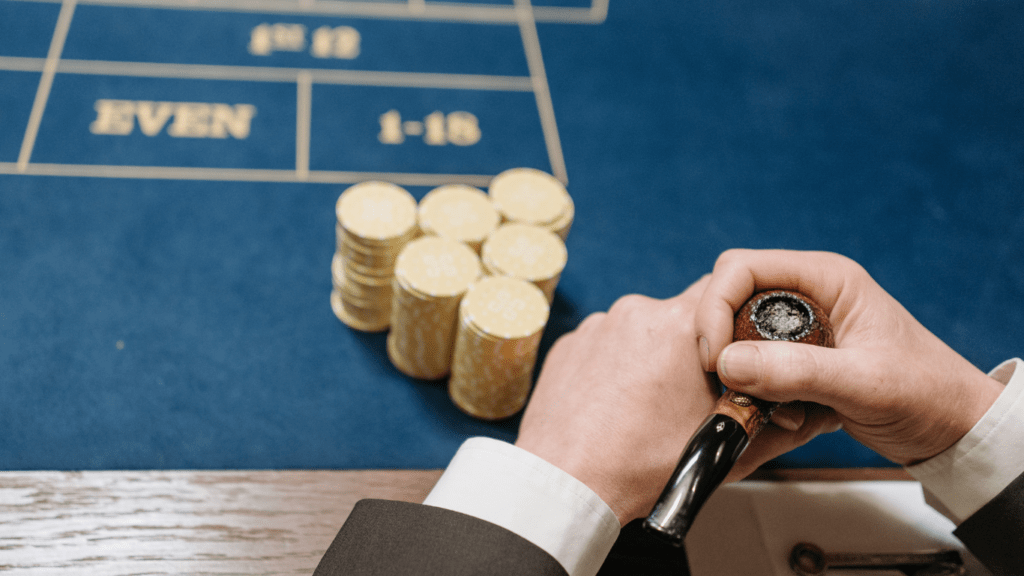The Concept of Luck
Luck, a favorable or unfavorable outcome attributed to random chance, often fascinates people. It’s perceived as an external force that can influence life events beyond personal control. Ancient beliefs and myths often depicted luck as a supernatural force or divine intervention, reinforcing its entrenched place in human history.
Several cultures, such as Chinese with ‘feng shui’ or Indian with ‘karma’, integrate luck into spiritual practices. This cultural embracement of luck suggests its deep-rooted influence on human behavior and decision-making processes worldwide.
Psychologists note that attributing life events to luck can be a cognitive strategy for dealing with uncertainty. This perception of luck offers comfort by seeming to reduce the unpredictability of life events. Studies reveal, individuals believing in luck may experience less stress, viewing negative outcomes as beyond personal fault.
Despite being intangible, luck significantly impacts personal outcomes and societal behaviors. It offers an explanation for life’s randomness, providing psychological relief and a sense of hope.
Historical Context of Luck Beliefs
Human history shows a lasting fascination with luck, a concept deeply rooted in culture and tradition. Examining ancient beliefs offers insights into how luck shaped societies and influenced behavior.
Ancient Civilizations and Luck
Ancient civilizations often viewed luck as governed by gods or supernatural forces. The Romans believed in Fortuna, the goddess of fortune, who determined the fate of individuals and cities. In ancient Egypt, people attributed luck to the capriciousness of deities, alongside the powerful influence of the stars on human fate. The Greeks intertwined luck with fate, personified in the goddess Tyche, emphasizing randomness and unpredictability. These societies regarded luck as a cosmic balance, integrating rituals and offerings to gain favor or avert misfortune.
Evolution of Luck Beliefs Through Ages
The belief in luck evolved as societies progressed, with philosophical shifts and scientific discoveries altering its perception. In the Middle Ages, luck intertwined with religious beliefs, often attributed to divine will or punishment. The Enlightenment introduced skepticism and reason, with figures like Voltaire critiquing blind faith in luck. The rise of probability theory in the 17th century brought a more rational understanding, redefining luck through the lens of chance and mathematical odds. Despite scientific advances, luck remains ingrained in human thought, spanning from rituals for fortune to modern superstitions, reflecting a persistent quest for control over life’s uncertainties.
Psychological Theories Behind Luck Beliefs

Understanding why people hold beliefs in luck involves exploring various psychological theories. These theories provide insights into how cognitive processes and cultural factors shape these beliefs.
Cognitive Biases and Illusions
Cognitive biases play a critical role in the belief in luck. The confirmation bias, for instance, leads individuals to focus on outcomes that match their expectations, interpreting them as lucky. If a favorable outcome follows a specific action, like wearing a favorite shirt, it might be seen as a result of luck, ignoring instances when the outcome was unfavorable. The illusion of control is another pertinent bias, where people overestimate their ability to influence events. Tossing a coin and hoping for heads often feels like a skill rather than chance, demonstrating how this illusion feeds the belief in luck. These biases function as mental shortcuts, simplifying complex realities.
The Role of Superstitions
- Superstitions reinforce beliefs in luck and are powerfully entrenched in behavior.
- They arise from cultural teachings, personal experiences, or a mix of both.
- If touching wood precedes a series of fortunate events, it strengthens the belief that this action wards off bad luck.
- These rituals are not merely quirky habits; they can impact decision-making.
- Research shows that superstitions provide a psychological boost, enhancing confidence in uncertain situations.
- By practicing these rituals, people gain a sense of control, which alleviates anxiety about unpredictable outcomes.
- Superstitions act as comforting mechanisms, bridging the gap between the desire for predictability and the chaos of reality.
The Emotional Impact of Believing in Luck
Believing in luck significantly affects emotions, impacting how individuals cope with challenges and make decisions. This belief is rooted in psychological mechanisms that provide stability.
Coping Mechanism
Many people turn to luck as a coping strategy during uncertain situations. Attributing outcomes to luck can reduce anxiety because it helps individuals feel less personally responsible for negative events. By externalizing outcomes, individuals often maintain a positive outlook and hope that good fortune may change future circumstances. This belief can provide:
- psychological stability
- offering comfort
- reassurance
when life feels unpredictable.
Risk-taking and Decision-making
Luck beliefs influence risk-taking and decision-making by affecting perceptions of chance and control. Those who believe in luck may engage in riskier behaviors, influenced by a perceived probability of favorable outcomes. This approach can lead to bolder choices in gambling, investments, and career moves, reflecting a confidence that luck will favor them. Conversely, the belief in bad luck can deter risks, as individuals may avoid situations they perceive as jinxed. This dual nature of luck beliefs consistently shapes how decisions are made and risks are evaluated.
Cultural Variations in Luck Beliefs
Luck perceptions vary widely across cultures, influencing how societies interpret chance and fate. Analyzing cultural viewpoints clarifies this diversity.
Eastern vs. Western Perspectives
In Eastern cultures, beliefs in luck often intertwine with spirituality and philosophical principles. Concepts like ‘feng shui’ in China or ‘karma’ in India manifest as intricate systems guiding daily activities and long-term goals. For example, feng shui aims to harmonize individuals with their environment, while karma emphasizes moral cause and effect. In contrast, Western cultures often perceive luck as random chance or probability, heavily rooted in historical shifts towards scientific understanding. Superstitions, such as the belief in lucky charms or unlucky numbers, still persist, yet they’re often more personal than spiritual.
Influence of Religion and Traditions
Throughout history, religion and traditions have significantly impacted luck beliefs. In many cultures, deities or spiritual forces govern luck, providing divine intervention in human affairs. For instance, Hinduism recognizes various gods influencing fortune, while in Christianity, divine providence plays a similar role. Traditions also embed these beliefs through rituals or anecdotes passed down generations. Indigenous cultures may hold ceremonies or storytelling traditions that emphasize luck as part of their spiritual worldview, illustrating the deep-seated connection between religion, cultural practices, and luck perceptions.



 Legal and Compliance Advisor for Key Gamble Lucky, Lucas specializes in navigating the complex landscape of casino game strategies, offering expert betting tips, and analyzing industry trends. With a strong background in gambling law and industry analysis, Lucas ensures that the platform remains up-to-date on regulatory changes while providing readers with valuable insights into the legal aspects of gambling. His expert advice helps readers sharpen their skills, make more informed decisions, and improve their overall betting outcomes, all while staying compliant with the latest legal standards.
Legal and Compliance Advisor for Key Gamble Lucky, Lucas specializes in navigating the complex landscape of casino game strategies, offering expert betting tips, and analyzing industry trends. With a strong background in gambling law and industry analysis, Lucas ensures that the platform remains up-to-date on regulatory changes while providing readers with valuable insights into the legal aspects of gambling. His expert advice helps readers sharpen their skills, make more informed decisions, and improve their overall betting outcomes, all while staying compliant with the latest legal standards.